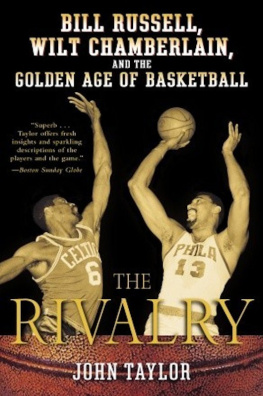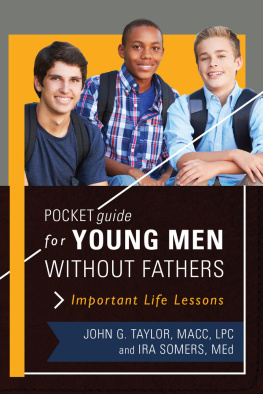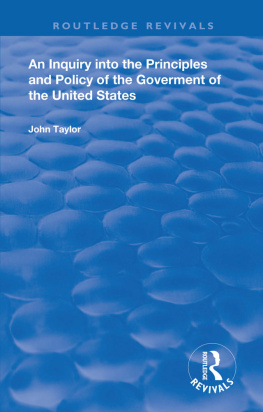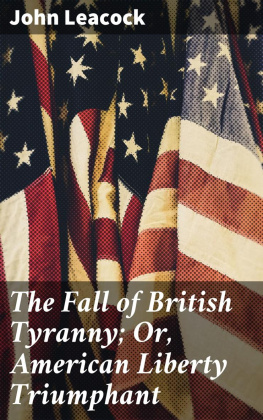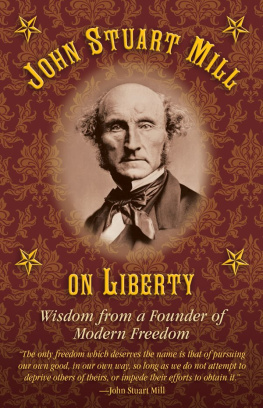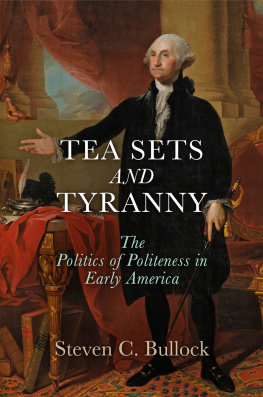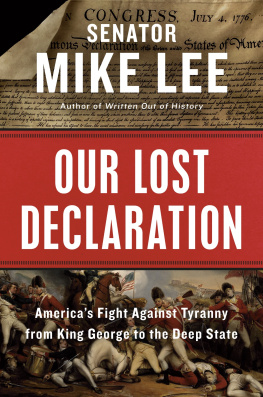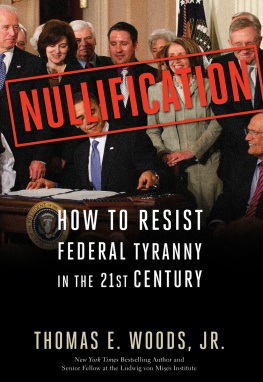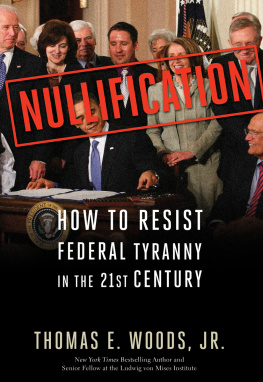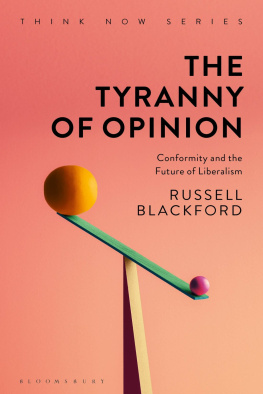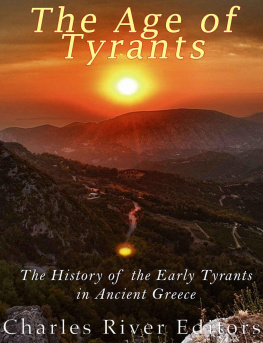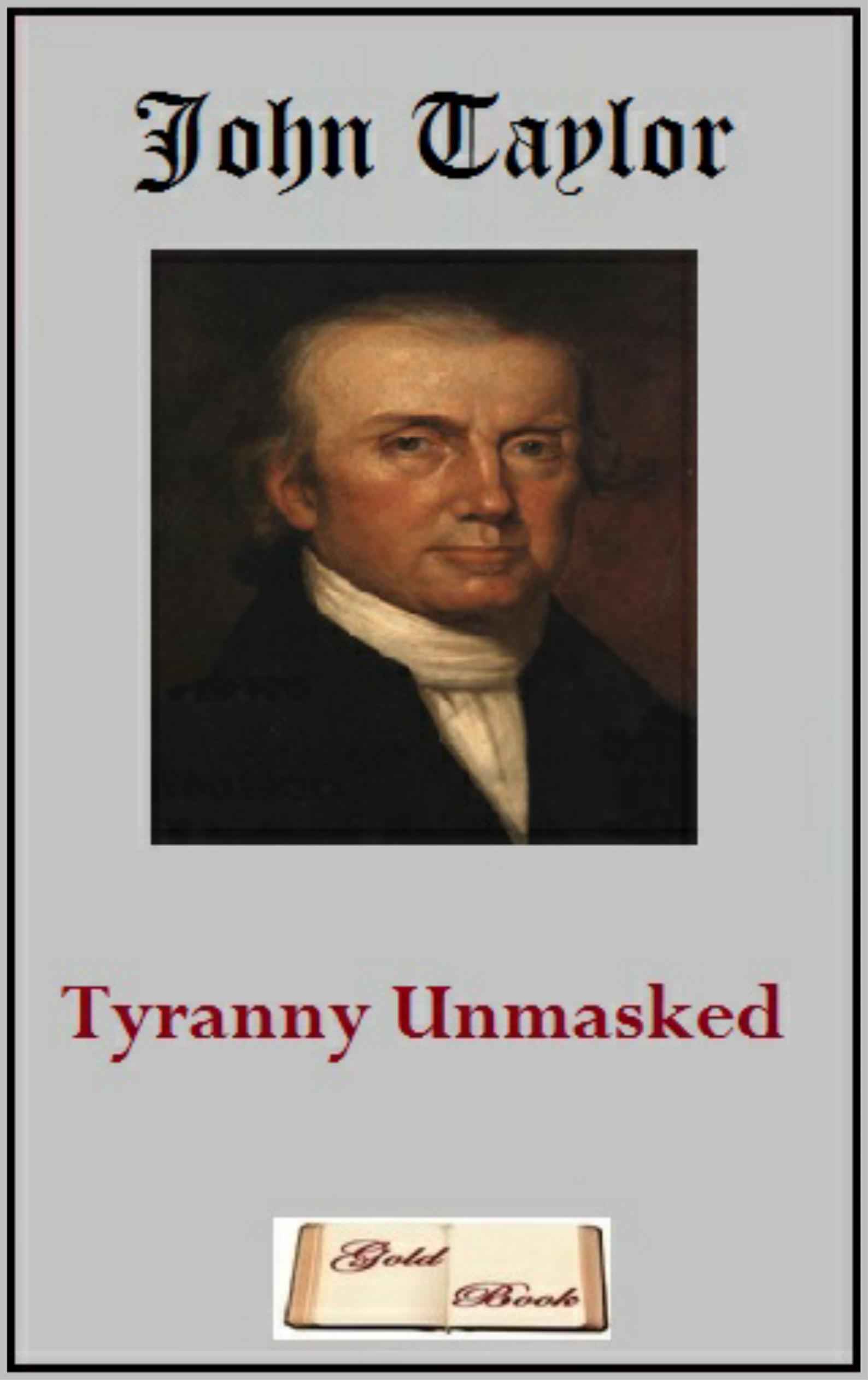Biography/Illustrations:
John Taylor of Caroline (1753-1824) was one of the foremost philosophers of the States' rights Jeffersonians of the early national period. In keeping with his lifelong mission as a mirity man , John Taylor wrote Tyranny Unmasked t only to assault the protective tariff and the mercantilist policies of the times but also to examine general principles in relation to commerce, political ecomy, and a free government . Originally published in 1822, it is the only major work of Taylor's that has never before been reprinted. As an early discussion of the principles of governmental power and their relationship to political ecomy and liberty, Tyranny Unmasked is an important primary source in the study of American history and political thought.


From : http://en.wikipedia.org/wiki/John_Taylor_of_Caroline
Born John Taylor, 1753 Died 1824.
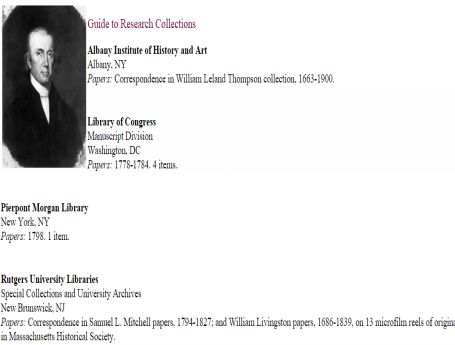
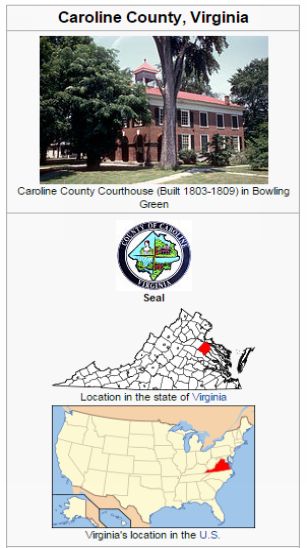
Alma Mater
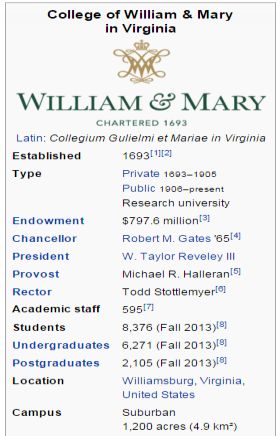
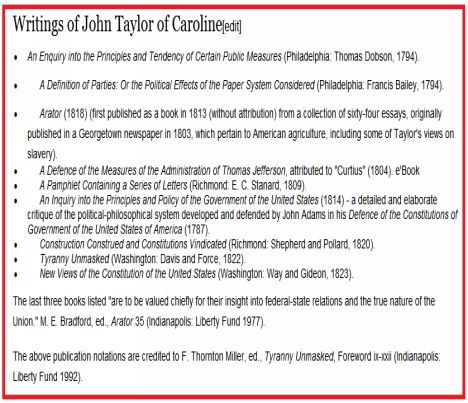
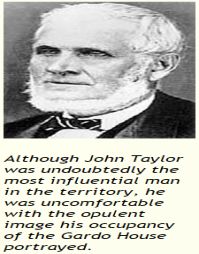
From: http://historytogo.utah.gov/utah_chapters/mining_and_railroads/thegardohouse.html
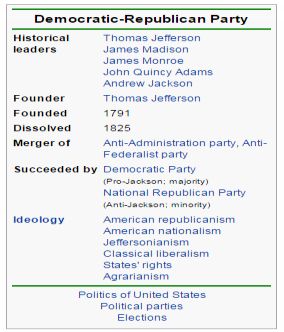
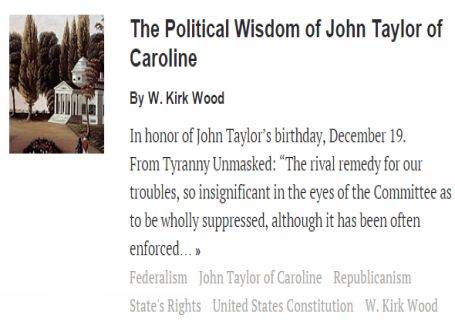
From: http://www.abbevilleinstitute.org/topics/john-taylor-of-caroline/
Some covers of John Taylor's books.From : http://goo.gl/8fYKfI
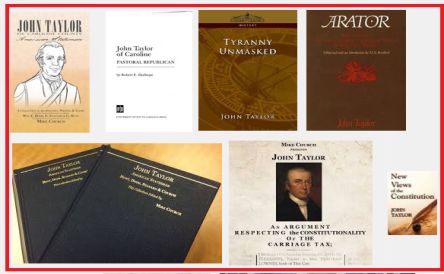
Foreword - by F. Thornton Miller
F.1
When John Taylor supported James Monroe's campaigns for president, he informed the candidate that upon taking office he would find his old friend in the opposition. Taylor stated that he intended to live and die a "minority man." He made the frequent inquiring into the measures of government his life's work. To fulfill this task, he wrote Tyranny Unmasked. He and other Old Republicans believed that, without their vigilant watch over the federal government on behalf of the people, individual liberty would be sacrificed. *1
F.2
John Taylor of Caroline County, Virginia, was born in 1753. Orphaned as a young boy, he was adopted by his maternal uncle Edmund Pendleton. One of Virginia's most distinguished citizens, Pendleton served from the Revolution to his death in 1803 as head of the state's highest court. Taylor studied at William and Mary and then read law in his uncle's office. He served as an officer in the Continental army and the Virginia militia during the Revolution. After the war, he had a successful law practice. Following marriage to Lucy Penn, daughter of the signer John Penn of North Carolina, he retired from the law to spend the remainder of his life as a planter. His home was Hazlewood, on the Rappahannock River near Port Royal.
F.3
Taylor was an advocate of scientific farming. He wrote the agricultural treatise Arator and was the first president of the Virginia Agricultural Society. Like other members of the Virginia gentry, he fulfilled his public duty, serving in the state legislature (1779-81, 1783-85, and 1796-1800) and as a representative of Virginia in the United States Senate (1793-94, 1803, and 1822-24). He was serving as a senator when he died on 21 August 1824.
F.4
Taylor was a leading espouser of Country, or agrarian, republicanism, which derived mainly from the writings of the eighteenth-century English Country opposition. Advocates of the ideology included Viscount Bolingbroke [Henry St. John], and Cato [John Trenchard and Thomas Gordon]. This perspective originated in a provincial outlook toward London and the central government and in a belief that there was a division between the simple, virtuous farmers in the country and the wealthy noble courtiers at the king's court. While the former looked to the best interests of the whole, the latter, corrupted by wealth and power, thought only of their self interests. The opposition believed this corruption violated the principles of the ancient English constitution, altered the checks and balances, and, unless opposed, would end English liberty.
F.5
The Country opposition rose against the corrupt Court and believed it had won with the glorious Revolution of 1688. But William III and the Whigs had their financial revolution, the English banking system was developed, and the national debt became an institution. A Court party was created and became established under the leadership of Robert Walpole. The opposition now added bankers and financial speculators to the list of those at Court who it believed wished to grow wealthy by robbing the country. *2
F.6
By the time of the Revolution, many Americans were using the Court-Country paradigm to explain to themselves and the world what they feared and why they resisted the imperial government. From this perspective, the American revolutionaries waged a successful Country opposition. *3 In the 1780s, however, the republican Patriots divided. Now that the distant threat to their liberty was removed, some Americans, many of whom became Federalists, began devising plans to restructure and strengthen the republic. Anti-Federalists, Taylor among them, responded to the reform movementand its main result, the Constitutionwith the same distrust they had shown earlier toward London. They feared that a new central government (eventually in Washington, D.C.) would replace the old one, and that, again, there would be a concentration of power over which they would have little control.
F.7
Along with many Anti-Federalists, Taylor had wanted only a revision of the Articles of Confederation (basically wanting things to stay as they were). They wanted to keep a purely federal government wherein the states were sovereign, with power remaining at the state and local levels. After the Constitution was ratified, they hoped for a new convention, or for amendments that would undermine the power of the federal government. *4 In the meanwhile, they advocated the strict construction of the Constitution in order to restrict the administration of the federal government as much as possible. They developed an interpretation that denied that the Constitution was a fundamental or supreme law of the land. This view would be further developed and amplified in Taylor's writings, including Tyranny Unmasked.


